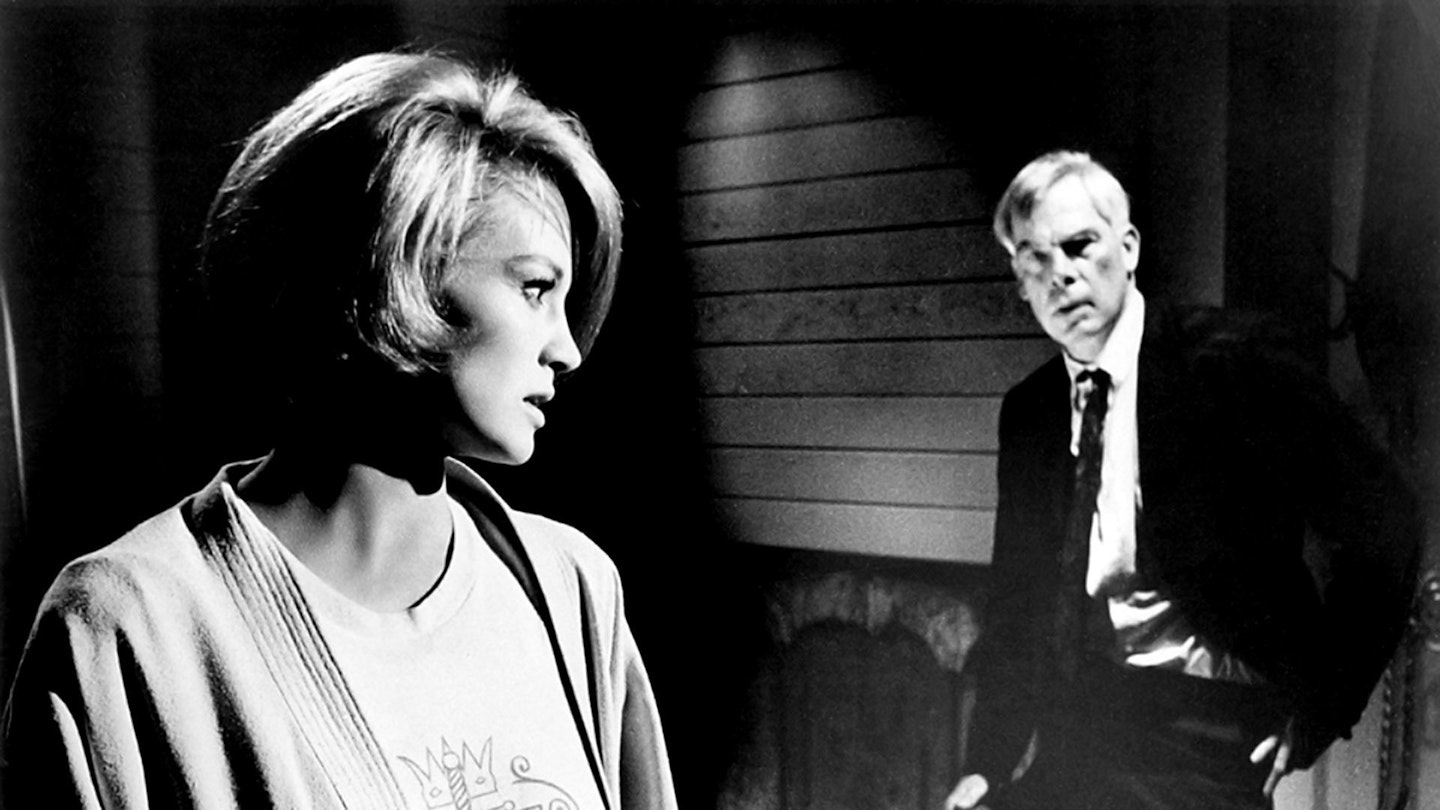Although a box office hit on its release, Point Blank was criticised by many reviewers for what was considered its excessive violence. In particular, squeamish critics objected to the scene where Lee Marvin's vengeance-minded armed robber repeatedly crashes a car thereby reducing the epidermis of his — un-seatbelted — passenger to the texture of pounded steak. Given such criticisms, it is traditional for Hollywood denizens to excuse themselves by arguing that they are far removed from the psychotics that they play. Marvin, however, took a difficult tack.
"Violence is ingrained in every drop of blood I have," the star said. "Because I come from the cavemen, baby, like everybody else. I don't glorify violence. I try to get to the understanding of it. There has always been violence. Who hasn't put kerosene on the cat's ass and put a light to it?"
The answer, of course, is probably far fewer people than the actor imagined. But, then, Lee Marvin was never exactly your run-of-mill type. An ex-Marine, Marvin had spent the latter stages of WWII "island-hopping" across the Pacific, on one occasion shooting at Japanese troops with one hand while vainly trying to plug the bullet-hole in a dying colleague's chest with the other. Moreover, even during his pre-fame days, the actor had gained a reputation as one of Tinseltown's livest of wires, thanks to his penchant for boozing, fighting and saying pretty much whatever came to mind. Most memorably, while making the Dirty Dozen (1967) in London, Marvin told a friend of Sean Connery that he bet she had, "The prettiest pink clittie in the room." This would surely have started the most famous A-list punch-up in history, had not Dozen producer Ken Hyman provoked laughter all round with the plea: "Not his face, Sean. We've got close-ups! Hit him in the body."
In short, it is difficult to think of an actor better suited to portray Point Blank's Walker — a relentless agent of death prepared to take on an entire organised crime syndicate if necessary to get the money he believes he is owed. Walker was originally the creation of novelist Donald E. Westlake — although he is called Parker in the books — and is arguably the most hard-boiled recurring character to be found in American noir fiction. A thief who depends equally on brains and brawn, he is also happy to murder anyone who gets in his way. Neither witty nor romantic, it is his sheer will power that makes him such a fascinating and popular character. "Parker" has appeared in no less than seven big screen adaptations including The Outfit (1974) and Mel Gibson's recent Point Blank retread Payback. But it is in Boorman's movie that he is most faithfully represented thanks to Marvin's awesomely hard-nosed performance.
As it happened, the actor would prove his worth to Boorman both on and off screen. Although the director had made a name for himself with the Dave Clark Five-starring Hard Day's Night knock-off Catch Us If You Can, he was an unknown quantity who would be replaced at the first sign of trouble. Just such a sign looked like being sent when Boorman ran into difficulties filming the movie's Alcatraz-set prologue, a difficult flashback-within-a-flashback sequence that would establish the movie's at times bewilderingly tricksy but defiantly stylish tone. Seeing that his director was in trouble, Marvin saved the day by pretending to be drunk.
Yet, while Marvin was without peer when it came to acting pissed, he also had few competitors when it came to the real thing, as biographer Donald Zee recalls: "The story goes that it was Boorman, or more specifically his car, which figured in a fascinating interlude one night in Beverly Hills. It seems the actor and director had been celebrating with real Anglo-American gusto. When the carousels ended, Lee crawled onto the roof of the director's stationwagon and refused to come down. Boorman, feeling that the cool night air might induce a change of attitude, began slowly driving down the street. A police car pulled alongside. "Do you realise you have Lee Marvin on the roof of you car?" the officer asked. "Of course I do," the director frowned. "That's all right then," the officer replied. "But drive carefully."
